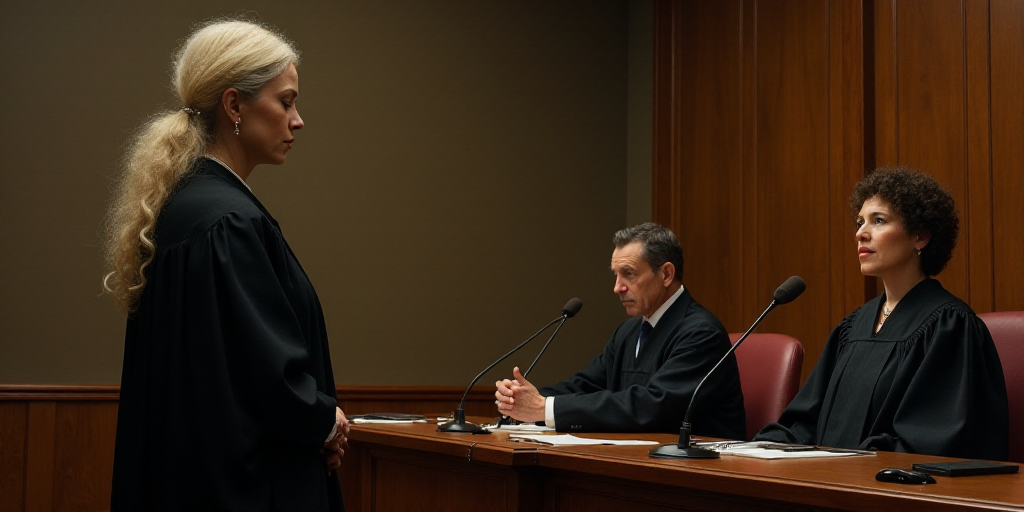Background on Ministra Lenia Batres and Her Relevance
Ministra Lenia Batres, a member of Mexico’s Supreme Court of Justice (SCJN), has been making headlines due to her stance on transparency and accountability in tax-related matters. As one of the current ministers whose term is nearing its end, her actions and proposals have significant implications for the future of tax resolutions within the SCJN.
Ministra Batres’ Request for Public Tax Case Resolutions
Ministra Batres has proposed that all pending tax cases in the current SCJN sessions be addressed in public, rather than privately. She believes that this approach will ensure transparency and justice.
Criticism of Private Sessions
Ministra Batres expressed her concerns about private sessions, stating that they are “obscure and unjustified.” She claims that these private sessions have been increasingly used to resolve tax matters in recent times.
Ministra Batres’ Absence and Impact on SCJN
On Wednesday, Ministra Batres absented herself from the second-chamber session of the SCJN, preventing the quorum necessary to discuss a project that would grant a tax deduction of 4,442 million pesos to the company Pegaso, PCS, SA de CV.
Ministra Batres’ Proposed Solution
In response to this situation, Ministra Batres announced her intention to propose that all tax-related matters be voted on during plenary sessions, ensuring transparency. She stated, “I decided not to attend due to the insistence on voting on high-cost tax matters for public finances. Next Tuesday, during the court’s plenary session, I will propose that all tax matters be voted on directly in the Plenum, transparently, given the imminent conclusion of the current ministers’ terms.”
Details of the Contested Tax Case
The tax case in question, reclamation 158/2025, involves a proposed approval by Minister Javier Laynez Potisek that would allow the 4,442 million pesos deduction for Pegaso, PCS, SA de CV. This decision would dismiss the direct appeal 1172/2025, enabling this substantial tax deduction.
Company’s Argument and Minister Laynez’s Proposal
Pegaso, PCS, SA de CV argues that the multimillion-peso payment should be deducted because the income tax (ISR) levied on them was generated by another firm within the same group that merged with Pegaso during that fiscal year.
Minister Laynez’s proposal, however, does not delve into the core of the matter, as it lacks any constitutional issues. Ministra Batres believes that the SCJN should dismiss this case due to its superficial approach.
Key Questions and Answers
- What is the main issue Ministra Batres is addressing? Ministra Batres is advocating for public resolution of pending tax cases in the SCJN to ensure transparency and justice.
- Why did Ministra Batres absent herself from a recent SCJN session? She refused to attend the session due to her concerns about voting on high-cost tax matters that could negatively impact public finances.
- What is the contested tax case about? The case, reclamation 158/2025, involves a proposed tax deduction of 4,442 million pesos for Pegaso, PCS, SA de CV. This decision would dismiss a direct appeal and enable the substantial tax deduction.
- Why is Minister Laynez’s proposal being criticized? Ministra Batres believes that Minister Laynez’s proposal does not address the core issues of the case and lacks a constitutional perspective, making it unsuitable for the SCJN’s consideration.






